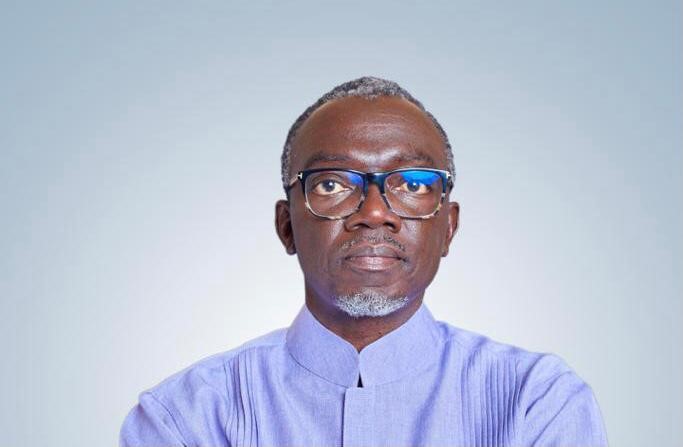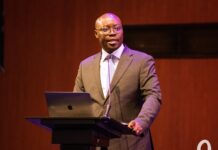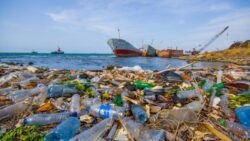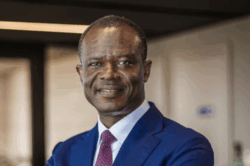Education is a fundamental right of every person and essential to development in all areas of life. Quality education leads to advancements towards sustainability. It is vital for a country’s growth and success, bringing economic improvement, poverty alleviation, and greater equality.
Although progress in education was slow before the outbreak of COVID-19, the pandemic and Ukraine war has severely reduced the possibility of achieving the fourth United Nations Sustainable Development Goal (UNSDG-4) by 2030.
The UN, Action Aid, and other leading “Think Tanks” have confirmed that the COVID-19 pandemic and the Ukraine war are “causing a global education crisis with most systems being severely affected by disruptions and unprecedented challenges.”
According to UNESCO, the result has been school closures and infrastructural underfunding, leading to devastating consequences for children’s learning and well-being,” – with the “poorest and most vulnerable children…bearing the brunt of the crisis.”
According to the 2022 UN SDG Report, the COVID-19 pandemic has virtually wiped out “the progress achieved in education over the past 20 years,” with approximately one hundred million more children failing to demonstrate basic reading proficiency.
In addition to this, coupled with the economic impact of the war, “large disparities in school completion are likely to get worse, especially among poor or vulnerable children,” they said.
Based on the report, it has been estimated that “147 million children” have “missed more than half of their in-class instruction resulting in this generation of children…losing a combined total of US$17 trillion in lifetime earnings in present value.”
Between March 2020 and February 2022, schools worldwide were partially or fully closed for approximately 41 weeks.
According to the UNSDG Report 2022, “the longer children are out of school, the less likely they are to return.” Based on this, it is estimated that 24 million learners from preschool to university level may never return to school.
“Students from more disadvantaged backgrounds are at higher risk due to socioeconomic factors such as the need to generate income, increased care responsibilities, and early and forced marriage. Those who were unable to access distance learning during confinement are also at higher risk of not returning to school,” they note.
Although education has become more accessible, inequalities persist, especially regarding disparities in gender, location, and socioeconomic status.
The UN Global Education Monitoring Report predicts that there may be a $97 billion gap in funding for 79 low and lower-middle-income countries over the next seven years. This represents 21percent of their total costs. Therefore, it is essential to take caution when planning finances for education in those countries.
Based on these recent reports, the ability of the UN to achieve SDG GOAL-4 by 2030 has come under question.
According to the original goals, Goal 4: Quality Education aims to ensure inclusive and equitable quality education and promote lifelong learning opportunities for all. Its targets were outlined as follows:
- By 2030, ensure that all girls and boys complete free, equitable and quality primary and secondary education leading to relevant and Goal-4 effective learning outcomes
- By 2030, ensure that all girls and boys have access to quality early childhood development, care and pre-primary education so that they are ready for primary education
- By 2030, ensure equal access for all women and men to affordable and quality technical, vocational and tertiary education, including university
- By 2030, substantially increase the number of youth and adults who have relevant skills, including technical and vocational skills, for employment, decent jobs and entrepreneurship
- By 2030, eliminate gender disparities in education and ensure equal access to all levels of education and vocational training for the vulnerable, including persons with disabilities, indigenous peoples and children in vulnerable situations
- By 2030, ensure that all youth and a substantial proportion of adults, both men and women, achieve literacy and numeracy
- By 2030, ensure that all learners acquire the knowledge and skills needed to promote sustainable development, including, among others, through education for sustainable development and sustainable lifestyles, human rights, gender equality, promotion of a culture of peace and non-violence, global citizenship and appreciation of cultural diversity and culture’s contribution to sustainable development
- Build and upgrade education facilities that are child, disability and gender sensitive and provide safe, nonviolent, inclusive and effective learning environments for all
- By 2020, substantially expand the number of scholarships available to developing countries globally, in particular least developed countries, small island developing States and African countries, for enrolment in higher education, including vocational training and information and communications technology, technical, engineering and scientific programmes, in developed countries and other developing countries
- By 2030, substantially increase the supply of qualified teachers, including through international cooperation for teacher training in developing countries, especially least developed countries and small island developing states
According to the UN, participation in primary school education is highly unequal. “Among countries with available data, disparities in attendance were found based on gender (39 per cent), urban or rural location (76 per cent) and household wealth (86 per cent). The data showed that girls tend to score higher than boys in reading proficiency at the end of primary school. They also showed that children in rural areas and the poorest households are consistently more disadvantaged regarding educational participation and outcomes than their urban, wealthier peers.”
Monitoring research data from the UNSDG have revealed that the Ghanaian government invests significantly in education, with a large portion of funding going towards pre-primary, primary and junior high school levels. Consequently, most students in Ghana have access to all levels of education, more so than in many other sub-Saharan African countries. This means the less fortunate can benefit from educational opportunities too.
Action Aid and UNESCO reports indicate resource challenges with Ghana’s free high school initiative. Nonetheless, “the country has set a good example for other countries in sub-Saharan Africa with similar incomes by expanding access to fee-free education for both pre-primary, primary and secondary levels“. Over time and with open-mindedness, they are optimistic that further improvements and funding gaps shall be rectified. Both, however, caution that care should be taken to emulate such practices as regional and economic conditions may influence success.
To sum up, having access to education has a vast and far-reaching impact on many facets of society, from fostering sustainable long-term economic growth and development to strengthening social stability. It can also provide individuals with the opportunity to maximize their potential and take on essential roles in the societies they live in.
Dr. Estrada Merino Alfredo of the Universidad de Lima has highlighted the need for significant changes in several educational elements, including but not limited to educational processes, learning settings and even educators. Such re-evaluation is necessary for better student outcomes and improved academic standards. “For a teaching and learning process to be successful, it must be dynamic, cooperative and ethical to facilitate and build and rebuild knowledge with the student and to empower them through global citizenship and responsibility,” he stressed.
In conclusion, the world is witnessing a seismic shift in the educational landscape as virtually all educational systems and their associated supply chains are being pushed to evolve and transform. The United Nations Sustainable Development Goal-4 presents a formidable challenge and opportunity for government and educational stakeholders to develop creative solutions to address the escalating need while ensuring that standards of excellence are maintained. It requires a delicate balancing act, as all parties must work diligently to ensure the long-term success of Goal-4.
>>>The writer is an international chartered director and Africa’s first-ever appointed Professor Extraordinaire for Industrialisation and Supply Chain Governance. He is the CEO of PanAvest International and the founding non-executive chairman of MY-future YOUR-Future and OUR-Future (“MYO”) and the “thought-provoking” daily Nyansa Kasa(words of wisdom) series. Professor Boateng is currently the non-executive chairman of the Minerals Income and Investment Fund (MIIF). He was previously the non-executive chairman of the Public Procurement Authority (PPA). For more information on Nyansakasa, visit www.myoglobal.org and www.panavest.com










